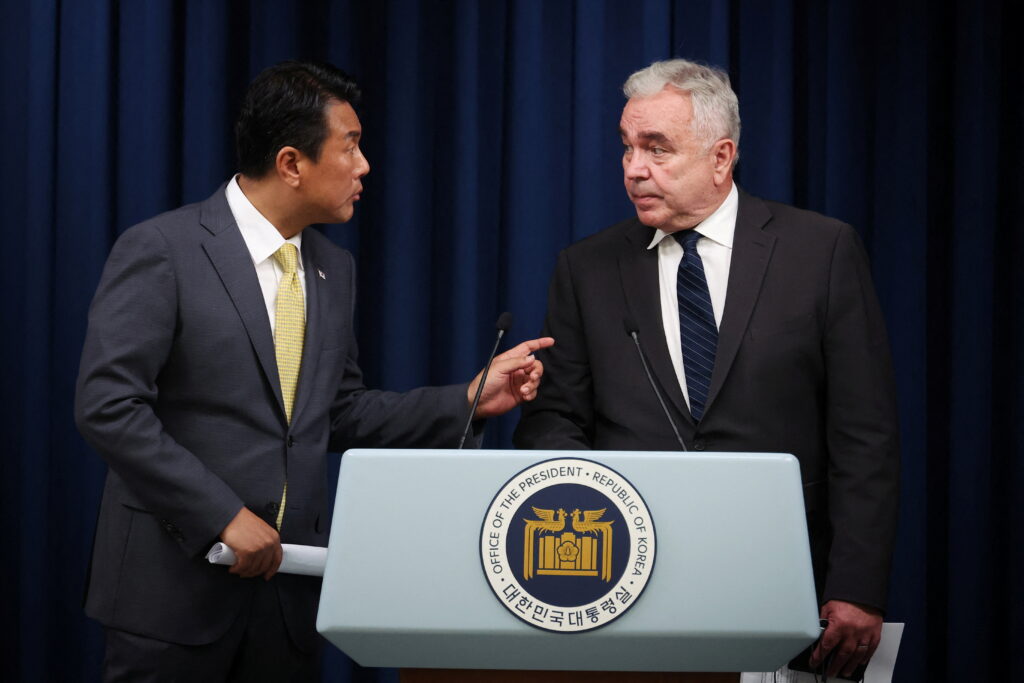On 6 February 2024, the US Senate confirmed Kurt Campbell as the next US Deputy Secretary of State, replacing Wendy Sherman, who retired after serving nearly three decades in the US foreign service. His appointment signals President Joe Biden’s attempt to shift focus away from the Middle East and Ukraine towards the Indo-Pacific, a region the United States identified as home to its pacing threat, China.
But for Southeast Asian leaders, the appointment is merely a temporary solution to a larger problem. Having Campbell’s expertise at the State Department is an appropriate first step, but he alone cannot fix the inconsistency of US policy. The US political climate could also undermine his goal of building a consistent and overarching Indo-Pacific strategy. Sensing these constraints, Southeast Asian leaders are instead using the ASEAN Outlook on the Indo-Pacific (AOIP) as a framework to diversify and guide their strategic partnerships with other regional powers.
Campbell is widely known as the framer of former US president Barack Obama’s Pivot to Asia policy and served as the Indo-Pacific coordinator at Biden’s National Security Council (NSC). Under his tenure, active diplomacy was revived after years of hiatus under the administration of former president Donald Trump. Biden attended his first US–ASEAN and East Asia Summits in Cambodia, as well as the G7 Meeting in Indonesia, hosted China’s President Xi Jinping in San Francisco and welcomed the Japanese and South Korean presidents to Camp David.
With the appointment of Campbell, the coordination of the United States’ Indo-Pacific strategy has moved from the White House to the State Department. He is now the second highest-ranking official with the authority to utilise the State Department’s assets and resources to support the Indo-Pacific strategy. He also has the diplomatic credentials to engage with Southeast Asian leaders while representing the official US government position.
The challenge is how the White House will manage the interagency process needed to coordinate the Indo-Pacific strategy when Biden has announced that he will not fill Campbell’s previous role at the NSC. Experts raise doubts as to whether the Indo-Pacific in general and Southeast Asia in particular still have privileged access to NSC and the Oval Office.
Despite strong bipartisan support for his appointment, Campbell may struggle to bridge the credibility gap the United States is facing in the region. The US Senate’s proposed budget dedicates very little funding to the Indo-Pacific, with funding instead being directed towards Ukraine and the United States’ southern border. The majority of the proposed US$4.4 billion for the Indo-Pacific will go to the US Indo-Pacific Command and Taiwan, mostly for military purposes.
Although the budget may not entirely capture the United States’ resolve in the region, it informs Southeast Asian leaders of current US priorities. Campbell could lobby the US Congress and the White House for a more forceful posture in the region, but strong polarisation will be an obstacle.
Campbell’s advocacy for continuous active diplomacy with Southeast Asian countries might be sidelined by overblown fears of China. He may tilt towards what he has previously criticised — the United States’ China-centric engagement with the region. In this approach, the United States allocates its resources largely towards addressing the power deficit with China while paying little attention to soft power projection and engagement with smaller states in the region.
Campbell understands that US engagement goes beyond China, but the growing anti-China sentiment at home might upend his broader goal of multilateral and multifaceted cooperation with regional stakeholders — both allies and non-allied countries.
Southeast Asian leaders may question the longevity and consistency of Indo-Pacific strategy at the US State Department. If Biden wins the upcoming election, Campbell is likely to remain a key player in managing the US–China rivalry and promoting active diplomacy in the region. But if Biden fails to secure the White House in November 2024, he is likely to resign from his post. As skilful and knowledgeable as Campbell may be, his vision for the Indo-Pacific hangs on who wins the upcoming election.
The good news is that Southeast Asian countries are accustomed to the routine inconsistency of the United States. ASEAN adopted the AOIP and has engaged with regional powers in large part to address this commitment gap.
The major benefit of the AOIP is that it does not view China as a pacing threat, which allows the region to align its interests with regional powers, especially in infrastructure development. Southeast Asian countries welcome China’s Belt and Road Initiative and Japan’s Connectivity Initiative, and recognise the growing importance of Australia and South Korea in security cooperation. The diversification of strategic partnerships in Southeast Asia demonstrates that the region maintains a complex yet advantageous set of multilateral relations rather than alignment with a single power.
Southeast Asian leaders never doubt US economic power and military prowess, but do question the United States’ commitment and political will. While Campbell’s appointment is the right move, the domestic political climate will define his success. For Southeast Asian leaders, this appointment is merely a temporary fix to an enduring problem — the inconsistency of US policy on Asia.
Vithoureakborndidh Chou is a J. William Fulbright Foreign Student Scholar and MA candidate at The Bush School of Government and Public Service, Texas A&M University.
All views expressed in this article are entirely the author’s own and do not reflect the opinions of any affiliated institutions.


On 6 February 2024, Kurt Campbell was confirmed as the next US Deputy Secretary of State, signalling a potential shift in focus from the Middle East and Ukraine to the Indo-Pacific region. But Southeast Asian leaders still see this as a temporary solution to the inconsistency of US policy. While Campbell's appointment and expertise is seen as a positive step, the political climate of the United States and the inconsistency of US commitment to the region leave doubts as to the longevity of this policy shift.